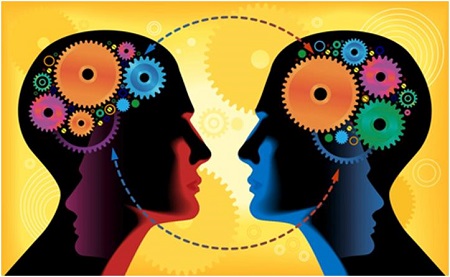
When we communicate, our assumptions can act as very powerful ‘filters’. A filter is a set of beliefs based on one or more “blocks” of knowledge about another person which can act to inhibit real understanding of what is being said or done. For example, assumptions or filters about what is appropriate for men or women to say or do in a given situation can interfere with conversations we are trying to have.
Not all filters have the same weight so we need to look at a few of these. The list below separates filters into two groups – what we call stronger and weaker. These labels are not intended to be hard distinctions, as they will vary from one individual to the next. However, in broad terms stronger filters are more powerful and potentially more inhibiting than weaker ones.
Stronger filters:
- Gender – many stereotypes start with statements like “men are so… or women are so….”
- Race/Ethnicity – again powerful stereotypes can be about people’s skin colour, country of origin, etc.
- Personality characteristics – stereotypes about introversion vs extraversion, quiet vs loud, conservative vs radical, cautious vs impulsive and many others.
- Social/Economic class- stereotypes about relative wealth, upbringing, family reputation, etc.
- Faith – stereotypes about particular beliefs like christianity, atheism and even agnosticism.
Weaker filters:
- Intelligence – including stereotypes about education levels, being over-smart, stupid etc.
- Accent/way of speaking – including stereotypes about clarity, regional speech patterns, word choices.
- Clothing/dress style – including stereotypes about covering up too little or too much, fashion-sense and deemed inappropriate clothing add-ons, etc.
- Handedness – including stereotypes about left and right handedness and being ambidextrous.
- Hair on head/face – including stereotypes about beards, moustaches, baldness, etc.
The key word we have used in all the above filters, both stronger and weaker, is “stereotypes”. Stereotype refers to our impressions about individuals who belong to a certain group of people. We have particular impressions about a set of people and, when we meet someone we believe belongs to that set, we then tend to perceive the person has all the characteristics of that group.
Any one of the above filters can be powerful and create an almost immediate barrier in a conversation and may influence us to avoid certain topic areas. Combinations of these filters can make any relationship-building almost impossible. We therefore need to work very hard to recognise which of these filters may be most powerful for us. We then need to avoid falling into the trap of thinking that a person with whom we wish to build a relationship can be anything other than an individual who should be understood as he or she is.
Related Resources



Comment here